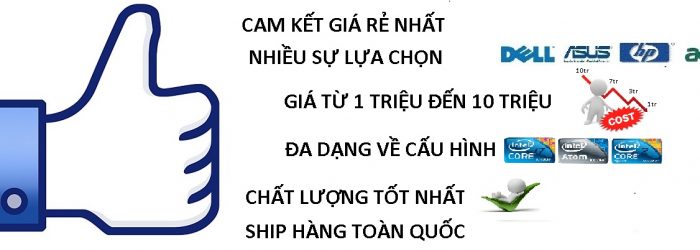political futures betting
- Giá sản phẩm Liên Hệ
- Hãng sản xuất chính hãng
- Chất lượng tốt
< !DOCTYPE html>
Political Markets Betting⁚ An Overview
Political markets betting, a niche within prediction markets, allows individuals to wager on political outcomes like elections. Participants buy and sell contracts that reflect the likelihood of an event, with prices mirroring perceived probabilities.
How Prediction Markets Work
Prediction markets, also known as information markets or event futures, operate on a simple yet powerful principle⁚ harnessing collective wisdom to forecast future events. These markets function similarly to financial exchanges, but instead of trading stocks or commodities, participants trade contracts linked to specific outcomes of political events, such as elections, policy decisions, or leadership changes.
Here’s a breakdown of how these markets typically work⁚
- Event Selection⁚ A prediction market platform identifies a future political event and defines a set of mutually exclusive and exhaustive outcomes. For instance, in a presidential election, the outcomes might be “Candidate A wins” or “Candidate B wins.”
- Contract Creation⁚ The platform creates contracts corresponding to each potential outcome. These contracts function like shares, with their value fluctuating based on the perceived likelihood of the outcome occurring.
- Trading⁚ Participants, driven by their analysis, information, and risk appetite, buy and sell contracts. Those who believe an outcome is more likely than its current market price will buy its corresponding contracts, driving the price up. Conversely, those who deem an outcome less likely will sell, pushing the price down.
- Price Discovery⁚ The constant buying and selling lead to a dynamic price discovery mechanism. The prices of contracts reflect the aggregated belief of the market participants about the probability of each outcome. For example, if a contract for “Candidate A wins” trades at $0.70٫ it suggests the market assigns a 70% probability to that outcome.
- Resolution⁚ Once the actual event occurs and the outcome is confirmed, the market resolves. Contracts corresponding to the winning outcome pay out a predetermined amount (often $1), while contracts linked to other outcomes expire worthless. This incentivizes participants to make accurate predictions.
The beauty of prediction markets lies in their ability to aggregate information from a diverse pool of participants. By providing financial incentives for accuracy, these markets encourage individuals to bring their unique knowledge, insights, and perspectives to bear on forecasting political events. This process can potentially uncover hidden information and generate surprisingly accurate predictions.
Accuracy and Bias in Political Betting Markets
While political betting markets have demonstrated impressive accuracy in forecasting election outcomes, particularly in comparison to traditional polling methods, it’s crucial to acknowledge that they are not infallible. These markets can be susceptible to biases and limitations that can potentially impact their predictive power.
Here are some key considerations regarding accuracy and bias in political betting markets⁚
- Information Asymmetry⁚ Participants in these markets may possess varying levels of information about candidates, campaigns, and political events. Those with insider knowledge or access to private polls could potentially exploit this information asymmetry for financial gain, potentially distorting the market’s accuracy.
- Small Odds Bias⁚ Prediction markets, particularly those dealing with political events, often exhibit a “small odds bias.” This refers to a tendency to overestimate the probability of low-probability events. This bias arises from bettors’ willingness to accept long odds for a small chance of a large payoff, even if the true probability of the event is exceedingly low.
- Late Breaking Information⁚ Unexpected events or news breaking close to an election can significantly impact voting behavior. Political betting markets, while generally responsive to new information, may not fully adjust to late-breaking developments, leading to inaccurate predictions in some cases.
- Manipulative Trading⁚ The potential for manipulation poses a risk to the integrity of prediction markets. Coordinated trading activity or the deliberate spread of misinformation could artificially influence contract prices, undermining the accuracy of the market’s predictions.
- Sample Size and Representativeness⁚ The accuracy of predictions in political betting markets depends on the size and representativeness of the participant pool. If the group of bettors is small or does not reflect the broader electorate, the market’s predictions may not accurately capture the sentiment of the overall voting population.
Despite these challenges, research suggests that political betting markets often outperform traditional forecasting methods, particularly in terms of accuracy and timeliness. However, it’s essential to approach these markets with a critical eye, understanding their limitations and potential biases to make informed judgments about their predictive value.
The Impact of Political Events on Betting Odds
Political betting markets are dynamic and responsive, with betting odds fluctuating constantly in response to a wide array of political events. These events, ranging from major international incidents to seemingly minor campaign gaffes, can significantly impact the perceived likelihood of a particular candidate or party’s success.
Here’s how different types of political events can influence betting odds⁚
- Election Debates and Campaign Rallies⁚ These events offer candidates a platform to articulate their policies, engage with voters, and potentially sway public opinion. A strong debate performance or a well-attended rally can boost a candidate’s odds, while a lackluster showing or a poorly received message can have the opposite effect.
- Economic Data Releases⁚ Economic indicators like unemployment rates, inflation figures, and GDP growth can significantly impact voters’ perceptions of the incumbent party or candidate. Strong economic data often benefits the party in power, leading to more favorable betting odds, while poor economic news can hurt their chances.
- Scandals and Controversies⁚ Scandals involving candidates or political parties, whether related to personal conduct, policy positions, or allegations of wrongdoing, can erode public trust and negatively impact their electoral prospects. Betting odds often shift quickly in response to such events, reflecting the perceived damage to a candidate’s reputation.
- International Events and Foreign Policy Developments⁚ Major international events, such as conflicts, diplomatic breakthroughs, or global economic shifts, can influence domestic political landscapes. Betting markets often adjust odds based on how these events are perceived to impact the political standing of candidates or parties.
- Social and Political Movements⁚ The rise of social and political movements, often fueled by public sentiment on issues like social justice, climate change, or economic inequality, can reshape the political landscape. Betting markets may reflect these shifts by adjusting odds based on the perceived impact of these movements on different candidates or parties.
Political betting markets serve as real-time barometers of political sentiment, constantly adjusting to new information and events. Understanding how different political events can influence these markets provides valuable insights into the ever-evolving dynamics of campaigns and elections.
Regulation and Legal Landscape of Political Betting
The regulatory landscape of political betting is complex and varies significantly across the globe. While some countries embrace it as a form of political expression and a valuable tool for forecasting, others maintain strict prohibitions, citing concerns about potential manipulation and integrity.
Here’s a glimpse into the diverse regulatory approaches to political betting⁚
- United States⁚ The US federal government largely prohibits political betting, with limited exceptions. The Commodity Futures Trading Commission (CFTC) holds jurisdiction over prediction markets, imposing strict regulations and often denying applications for political event contracts. Notably, PredictIt, a popular platform, operated under a no-action letter from the CFTC, which was later revoked, leading to its closure in 2023.
- United Kingdom⁚ The UK takes a more liberal approach, allowing licensed operators to offer political betting on a wide range of events, including elections and referendums. The industry falls under the purview of the Gambling Commission, ensuring compliance with regulations aimed at preventing fraud and promoting responsible gambling practices.
- European Union⁚ EU member states generally regulate gambling at the national level, resulting in a patchwork of laws regarding political betting. While some countries, like Ireland, permit it, others maintain stricter stances. The EU’s focus lies in ensuring consumer protection and preventing cross-border criminal activities like match-fixing.
- Other Countries⁚ The legality and regulation of political betting vary considerably elsewhere. Some nations, like New Zealand, allow it through state-licensed providers, while others, such as Canada, prohibit it with some exceptions for charitable purposes.
The ethical and legal considerations surrounding political betting continue to be debated. Proponents argue it reflects genuine information aggregation and provides valuable insights into public sentiment, while critics raise concerns about potential manipulation, addiction, and the potential for undermining democratic processes.










 Visit Today : 152
Visit Today : 152 Visit Yesterday : 205
Visit Yesterday : 205 This Month : 3505
This Month : 3505 This Year : 12054
This Year : 12054 Total Visit : 525402
Total Visit : 525402 Total Hits : 1533022
Total Hits : 1533022 Who's Online : 1
Who's Online : 1